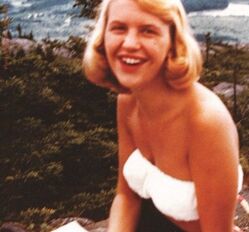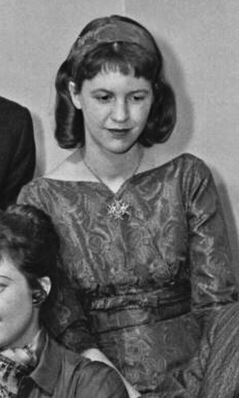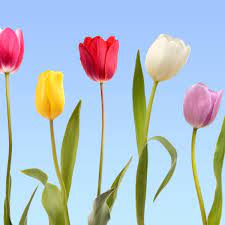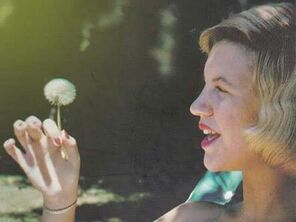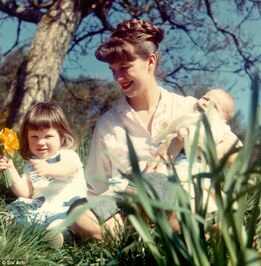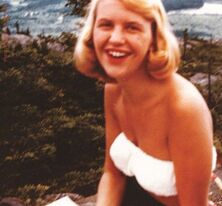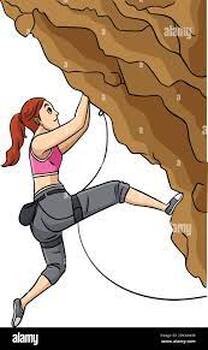|
First impressions are very important when meeting new people. If you're introduced to someone and you have big pimple on your nose, or happen to be wearing your dingiest clothes, it's likely you'll feel a bit self-conscious. Rumor has it that your shoes are the first thing people notice about you when you meet them. So, today's blog is how to make sure you give your poems good shoes! And I'm not talking about titles or first lines, either, although those are crucial elements. What I'm talking about is the first word of a poem. That's where a poem starts to really walk and maybe even run or dance. But whatever it's going to do, the first word is the cue to action. Let's look at some examples, starting with Emily Dickinson's famous poem, "The Chariot." The word "Because" is a powerful starting point, almost of an equivalent scope to a larger phrase, like: "In the beginning." The first word promises something, and what it promises is: explanation. T.S. Eliot's "The Wasteland" starts off with the hopeful word "April" and then descends straight into Hell. Diane Seuss's poem "Self-Portrait with Sylvia Plath’s Braid," (linked above) starts with the word "Some" and proceeds to carve out a rebellious portrait of individuality. Robert Frost's, "The Road Not Taken" starts with the decision-word: "Two," and this initiates the reader into the poem's theme of choices. I could go on and on, but you get the idea: first words, like first impressions, set expectations and tone. They make moods. And if you get the first word wrong, it's likely the rest of the poem will follow suit. For example, there's a Ted Hughes poem called, "Buzz in the window" that starts with the word, "Buzz." Never mind the useless repetition, the word is so arresting and exciting that it should lead into something spectacular, but instead, the poem continues: "Fly down near the corner..." If you set expectations high with your first word, you have to start delivering fast. So keep that in mind. Hopefully these examples spark some ideas! Meanwhile, if you find these blog-posts useful, please consider buying me a spot of coffee through the link below! I could really use it! You can also donate here: PayPal [email protected] And if you'd like some expert help with editing or polishing your poems, or you just want a bit of feedback, hit the links below. Or email me at [email protected] I look forward to reading your work! Categories All
0 Comments
"Wintering" is Sylvia Plath's triumphant declaration of victory and joy. Victory at having found the world of honesty and truth that she sought her entire life, first as a scientist following in her father's footsteps, then as a poet, searching beyond the gates of self-identity and death for the reality she intuited might exist beneath the world's often superficial surface. Joy is what she found under that surface. The poem is part of her "Bee Sequence" and I suggest you read the whole set of poems sometime. For now, we'll concentrate on just "Wintering," (click picture above) which is the final poem of the sequence. The poem starts with the line: This is the easy time, there is nothing doing. What? I thought this was a Plath poem? How could the writer of "Daddy" and "Lady Lazarus" start a poem this way? Didn't she kill herself? What's going on here? The truth is, Plath found immense joy, creative peace, and unstoppable inspiration in her experiences with the loss of personal identity. It is similar, but not exactly the same as, what reportedly happens to some people who take psychedelic drugs. Plath didn't use psychedelics, but the breakdown of her "ego" and her ties to the world of "mendacity" even for a short period, through her encounters with poetry and nature, revealed an illumination that not only made her poetic name, but changed the entire world, and is still growing. In "Wintering" she enters the cellar of an unnamed aristocrat in a spare house she has rented. This is a symbol of the abyss, the "blackness and silence" of the Yew tree, the All Being of nature. Only now Plath has no fear of the void, she has made a home for herself there. But it is not based on materialistic things or titles such as "Sir So-and So's gin." Instead it is based on an abiding -- perhaps eternal -- connection with the rhythms of nature. She has become Queen of the Bees, just as her father, Otto, was known as King of the Bees, but as Queen she doesn't want to control nature, she simply wants to perpetuate it. She has learned from her encounters with nature to see life, not death, as the impetus of being. She has regained a personal identity, but it is a greater, much wiser and more enduring self-identity than she had as "Ted Hughes's wife." This is how we should remember Plath, because this is the poet she truly was... Her tragic suicide was the result of her inability to stay in this moment of illumination, but she touched it and she left a record to inspire countless generations to come. So in a sense, she did stay rooted in it. This concludes my first blog-post series on Sylvia Plath, but it won't be my last! If you enjoyed the posts, please consider making a small donation to my PayPal, or use the Buy Me A Coffee button to make a donation through my MusicGuru page. I could really use the support right now!! https://www.buymeacoffee.com/writerdanQ Donate via: PayPal: [email protected] CashApp: $writerdan Categories All Though Plath wrote a number of important poems between "Tulips" and "The Moon and the Yew Tree," these poems still fall short of what would become her full brilliance. They describe her struggle to place the experiences she had during her hospital stay in context as she returned to the "Mad Men" day to day world of a wife and mother in America in nineteen sixty-one. What this meant mostly was she couldn't mention her loss of personal identity experiences to anyone, or her poetic ambitions. It was time, finally, by everyone's clock for Sylvia to grow up and be a good mother. She may not be an artist, but she had the honor of being married to a great poet, Ted Hughes, who seemed fated to someday sip wine in a castle, which is what he later did as Poet Laureate to Queen Elizabeth II. But when he was still married to Plath, he was gracious enough to assign her "studies" from time to time to write about. Plath's brilliant poem, "The Moon and the Yew Tree" (click her picture above) is the result of one of the "instructions" that Hughes gave to her, after seeing the moon behind a yew tree outside their apartment window. The poem that Plath wrote at his orders explodes with the mystic visions she'd discovered in "Medallion" and "Tulips." She embraces the "nothingness" of Jung's abyss, the "blackness and silence" of the universe and purely embodies this abyss as the source of creative power. The key is that Plath's poetic self now knows that "blackness and silence" are the sources of creative energy in the universe, the unbroken Is-ness that stays true and sacred despite our often phony lives and self-identities. She's able to spin a myth out of the scene as if by sorceric will. The poem shocked Hughes very deeply. As a poet and an enthusiastic reader of Shakespeare and myth, he recognized that Plath had become a true Seer. He also probably realized she'd been making his meals, sewing on his buttons, and typing his poems while he berated her attempts to write and slept around behind her back. He didn't want any of that to change, but the poem said change is coming. In typical Hughes fashion, he simply shrugged off the poem as a practice piece to Plath's face, but we now know, reading over his posthumous criticism of her poetry and his Birthday Letters poems, how much the poem wounded him and rightly so. As powerful as "The Moon and the Yew Tree" is, Plath was just getting started. Having discovered the creative heart of the cosmos and maybe even her place in it, Plath was ready to step fully into her poetic genius, which she does in the poem we'll look at next Monday, "Lady Lazarus." Poem tally as of today: 8-21-23: Poems Written: 345 Poetry Submissions: 51 Rejections: 25 (15 tiered) Acceptances: 0 Poem written today: "Still Houses" If you're enjoying this series of posts on Plath won't you please consider making a small donation to the cause? https://www.buymeacoffee.com/writerdanQ Donate via: PayPal: [email protected] CashApp: $writerdan Categories All By the time Plath came to write her poem "Tulips," her marriage and personal life were hanging by a thread. Her poem "A Winter Ship" foreshadows the erotic breakup between herself and Hughes, while "Medallion" shows Plath's exile from the literary establishment and her awakening as a mystic. "Tulips" is where Plath's genius really begins to assert itself. I've written a long-ish, very scholarly essay on "Tulips" and I encourage you to read it, but expect to be challenged, as the depth of this poem is considerable. What I want to say about it here is simply this. Consider how Plath uses the texture of "blackness" (and silence) in her early poems and how it begins to emerge after "Black Rook in Rainy Weather." What you'll see is: the notion of black moves from the basic notion of existential death to an idea of limitless creation, a la Jung's abyss. I'm not saying she brushed up on Jung; I'm saying, she stepped into an alchemical truth. Plath needed authenticity. She saw the world around her, whether justly or not, as fake. The titles we give each other, our family connections, the literary establishment, the way we view sex and nature -- the way we view and treat animals. This artifice or mendacity as Tennessee Williams called it in Cat on a Hot Tin Roof drives the world, but it doesn't drive the poet's world. In "Tulips" -- Plath explores what it might be like to cast off everything from family to skin and just drift in the universe as being-ness without a name or particular purpose. What she finds is holiness and spiritual fire. She finds "a peacefulness so big it dazes you" -- and though the tone of the poem is sad, or even somewhat morbid, it is truly a poem of birth. Plath emerges from this poem and experience with a great deal of creative energy and a vision that is suitable for its consumption. Her next great poem, "The Moon and the Yew Tree," marks the point at which Plath forever moves from being a seeker to being a Sibyl -- or, as I've been quietly shouting all along -- a Melissae. But you don't need to know all that! Just be aware that by "dying" to the demands of her persona, Plath was "born" into the great poet we all love. That's what's important! Want a little help polishing or editing your poems? Contact me: [email protected] OR use the links below. Support the blog through the link below (leads to my "music guru" page) or donate through PayPal to [email protected] I deeply appreciate your help in keeping the blog alive! Poem tally as of today: 8-14-23: Poems Written: 341 Poetry Submissions: 51 Rejections: 25 (15 tiered) Acceptances: 0 Poem written today: "Sky Slip" Categories All The important things to take away from "Medallion" (linked thru picture) are that it shows Plath's initiation into nature as a mystical experience, and her first notable encounter with immortality. Prior to this poem, Plath's work simmered with a typical scientist's daughter's existentialism. It's quite evident in her poem "Mussel Hunter at Rock Harbor." Also in poems like "Dirge for a Joker" or even her very early political poem, "Bitter Strawberries."
But in this poem, death awakens in the form of a jeweled snake. Stanzas 2-6 read: Inert as a shoelace; dead But pliable still, his jaw Unhinged and his grin crooked, Tongue a rose-colored arrow. Over my hand I hung him. His little vermilion eye Ignited with a glassed flame As I turned him in the light; When I split a rock one time The garnet bits burned like that. Bust dulled his back to ocher The way sun ruins a trout. Yet his belly kept its fire Going under the chainmail, The old jewels smoldering there The dead snake is more alive now than when it was living. In death it has been "perfected." The speaker of the poem has passed now through the "gate with star and moon" -- symbolically -- and has entered a world beyond the ordinary. The "rare, random descent" Plath cried out for in "Black Rook in Rainy Weather" has become the world. But to see the mystical world one must leave behind the "flung brick" of the constructed world, the human world of cities, fathers, fear of death, and ignorance of nature. The speaker of the poem is now more alive, alone in the woods with a dead snake, than she was with the "yardmen" of human society. The poem ends as though the snake is being cast into metal -- becoming a medallion.... Plath has seen beyond death; she has experienced an ego death; she has stepped out of her father's shadow, off the concrete path, and into the wild, witchy world of the ouroboros. From this point on, her poetry would retain this magic that she discovered at Yaddo while her poems and book mss. were being roundly rejected and her husband's star was rising. In between cooking his meals, sewing on his buttons, and typing his poems, Plath also managed to attain a poetic genius that those around her never even knew was possible... This poem was and is her medal, her medallion. This is where it all truly started. Poem tally as of today: 8-7-23: Poems Written: 333 Poetry Submissions: 51 Rejections: 24 (14 tiered) Acceptances: 0 Poem written today: "Gull Wings" Want a little help polishing or editing your poems? Contact me: [email protected] OR use the links below. Support the blog through the link below (leads to my "music guru" page) or donate through PayPal to [email protected] I deeply appreciate your help in keeping the blog alive! * If you're feeling really ambitious, please look up the Melissae, find all the stuff about bees and seeing past the veil of death through poetry, and consider how this all relates to SP, synchronistically. When the speaker of the poem in Plath's, "Medallion," picks up the dead snake and looks it in the eye, everything changes. Plath's view of death changes, her view of nature changes, and -- most importantly -- her poetry changes. It would never again be the same. I know this seems like a very strong statement, but I can back it up. First of all, Plath's gesture in taking the dead snake in hand is more than a Freudian castration fantasy and it's more than a throwback to the Biblical rebellion of "Sonnet to Satan." What she's doing in this poem is more, even, than striking a blow for Mother Earth and ecology. Although she's definitely doing that. To fully understand what's going on in the poem, we need to tap deeply into a single word: the title. The first thing to note is that it's a single word. It suggests unity and wholeness. Like the roundness of a medal. I wonder if you are aware that the word "medallion" applies to more than a medal, or a carving in a wall. It actually can also mean a small serving of meat. And this is the aspect of the word that's really important here. Plath's husband, Ted Hughes, was very well known as a "muscular" poet, centered on nature, who often assumed the perspective of predators, like jaguars, gar, or foxes. He was an alpha male of a guy. So let's tie that to another quick biographical insight into this poem. It was written at a writer's retreat called Yaddo that was only for the cream of the crop -- and Plath was there as a guest of her husband, who was actually in residence there as a poet. She was a tag-along. A small serving of meat. Now deeply consider this as you read the poem again (click Plath's picture above). The setting is Yaddo. Plath is alone. She finds a dead snake by the gate and picks it up, bonds with it, and in doing so not only gains a "medal" of individuation and poetic purpose, but also learns something about the nature of predation and the heart of nature itself that her nature-poet husband seems to have missed.... These lines are a description of the beginning of what she learned: Over my hand I hung him. His little vermilion eye Ignited with a glassed flame As I turned him in the light; It is at this precise moment that her unique voice and purpose as a poet is truly initiated. But to gain it she has to see through death. Her poetic voice is dependent on seeing through death. It is also at this point when the premonition of her marriage break-up (as shown in "A Winter Ship") starts to prove itself true. But more on all this next Monday*, as I finish up my analysis of this incredible poem. Yes! The poems is worth three blog posts! It's probably worth an entire book! Poem tally as of today: 7-30-23: Poems Written: 325 Poetry Submissions: 51 Rejections: 24 (14 tiered) Acceptances: 0 Poem written today: "Skull Money" Want a little help polishing or editing your poems? Contact me: [email protected] OR use the links below. * If you're feeling really ambitious, please look up the Melissae, find all the stuff about bees and seeing past the veil of death through poetry, and consider how this all relates to SP, synchronistically. Categories All Plath's poem "Medallion" marks a powerful turning point in her poetry. Prior to this poem, Plath's encounters with nature describe a seeking, almost childlike vision. In poems like "Black Rook in Rainy Weather" or "Full Fathom Five" we encounter descriptions of nature that are partly naturalistic and partly mythological. This fusion of rational and mystical response is what Plath does best, but before she wrote "Medallion," there was an invisible, but quite firm, barrier between her and the natural world. Plath's father was a biologist who specialized in studying bees. He was affectionately known by his students as "King of the Bees." For Plath, initiation into nature was primarily a scientific affair, but it also carried a mystical, spiritual aspect as her father guided her to see nature with reverence and curiosity. Plath's husband, Ted Hughes, was a "muscular" poet well-known for his poems on nature and animals. What makes "Medallion" so special is that the poem marks the exact moment in Plath's development where she drops her "inherited" patriarchal vision of nature and initiates herself into a personal, more feminine and much more mystical vision of the natural world. This is the poem where she moves away from her father and her husband's view of nature as a setting for competition, dominance, and predation -- and begins to feel herself as an artist connected to the rhythms and mysteries of nature. The first lines make it clear that this is a mystical initiation, a spiritual, magickal encounter: By the gate with star and moon Worked into the peeled orange wood The bronze snake lay in the sun Believe it or not, to an old alchemist such like me, the whole of mystical transformation is laid out in this single stanza. The table is set, the stars are aligned, and we are already at bronze stage. One key element here is that, quite rightly, the bronze state of alchemical process is connected, deeply connected, with death. The message here is not: death is the power that transforms, but rather, death is merely a stage of transformation and not just literal death, but also symbolic death. So here we have a dead snake, exploding with Freudian overtones, in a setting of witchy nature, with a lone speaker, a poet, left to contemplate a world where men have seemingly vanished but left behind an enduring statement. As the lone woman of the woods, an "Eve" so to speak, what does the speaker of the poem do? She picks up the snake. And that's when things start to get really interesting. Click the pic above to read the poem and then come back next Monday to read the rest of my analysis!!! Poem tally as of today: 7-24-23: Poems Written: 318 Poetry Submissions: 51 Rejections: 24 (14 tiered) Acceptances: 0 Poem written today: "Sea Bacon" Categories All "Full Fathom Five" (linked through Plath's picture above) is the first poem that Sylvia Plath wrote that hints at the paradigm-shattering voice she would develop later, particularly in connection to specific psychological themes. Prior to this poem, Plath's urge to deal with her "daddy" issues expressed itself only through reworkings of fairytale archetypes and, as we saw with "Sonnet to Satan," ironic jabs at authority. This is the poem where everything changed. It is, in effect, Plath's baptism into Confessionalism, although Confessionalism had not yet been invented, and the poem stops well short of being authentically confessional. The opening lines of this Shakespearian titled poem make it clear that Plath, like Hamlet, is no stranger to her father's ghost: Old man, you surface seldom, Then you come in with then tide's coming The connection between memories of her father, the sea, and the moon (tides) is foundational to Plath's poetry. You can't fully understand Plath's work if you are blind to this essential starting point. Plath has received a wound (her father's death) and she turns back to childhood memories of the sea to console her. But instead of lolling around on the sands turning angelic bronze under the Boston sun, the sea is calling her to not only get wet, but to drown. As Plath sinks into the sea in the poem, she falls through the ghost of her father who seems to dissolve before her as she drowns. The sea, the psyche, and poetry are fused in this space where all solid things start to show cracks, and -- in fact, threaten to become nothing more than ghosts. Of great interest here is that "Full Fathom Five" is only one of two poems she wrote that day. The other "Lorelei" describes her complete drowning as she suicides into the sea to escape the patriarchal world of solids. In "Full Fathom Five" Plath cries out for her father's "shelled bed" and in "Lorelei" she begs the sirens to "ferry" her to her death. These poems, written back to back while Plath read a book by Jacques Cousteau, express violent, contradictory desires for life, for death, for love, for masculinity, femininity, for God, for nature. The key thing to take away from this is that these are starting points for Plath. She is just barely creaking the door open to her genius. The dissolving power of the imagination is a starting point, not an end. The next stage, a la alchemy, is to fuse things back into new forms. Another important poem, "Mussel Hunter at Rock Harbor" was written by Plath the next day and this poem became her first New Yorker poem. This one is the "capstone" of Plath's juvenilia. It's the poem all the others were building to and it's also her forever goodbye to the "Ocean 12-12W " world of her childhood. A successful fusion of the past. Or should have been. As we'll see later, Plath's paradisal past continued to haunt her to the very end. So a trilogy of sea-poems written in two days that foreshadow a lot of what would later form into Plath's mature work. All three are well worth reading and show all of the classic Plath riffs with diction, figurative language, and archetypes. I'd talk about them more but the blog would get too long. Next Monday, we'll talk about Plath's poem "Medallion" one of the first poems that shows the fracturing of her relationship with and marriage to the poet Ted Hughes. Tally Poems Written: 314 Submissions: 51 Rejections: 23 (13 tiered) Acceptances: 0 Poem written today: "Cherry Finder" If you need a hand revising and polishing: 1) Have me do it for you! Click the "Poem Polisher" button below. I've helped lots of poets. 2) Use my 7 Secrets of Poetry pdf as a guide for revision. Categories All Poems have natural elements that stay the same no matter what you do. The words move from left to right and the lines go from top to bottom. Of course you can change this and make any kind of poem you want, one that goes backward, forward, or makes alphabet soup on the page or screen. But, for the most part, the basic elements of a poem stay the same each time you start to create a new work.
Everyone knows that the last word of each line gets special emphasis by the reader, no matter what enjambment you use. Everyone also knows that first lines and last lines enjoy a greater punch just by being there. These are basic elements that every poet learns to use, almost by instinct. But what about other "elemental" elements of a poem? Are there aspects that get less attention than first words and last lines, but are just as powerful? In fact, there are quite a number of these basic elements that you can use to empower your poems. I'm only going to talk about one in this post and that's the downward motion of a poem. Virtually every poem in English moves from the top to bottom and you can (and should) use this natural motion to you advantage. One perfect example of this is the poem I talked about in yesterday's post, Plath's "Black Rook in Rainy Weather." The poem starts with the speaker looking up in a hopeful way, and then, as the lines fall down, the speaker looks inward to doubt and hesitation, sweeping back up (slightly) at the close to find a sprig of hope. Another really short poem that uses the downward motion of a poem well is: "We Real Cool" by Gwendolyn Brooks, with the lines literally burying the guys in the poem and leaving a tombstone to them. Another great example is "Apple Picking" by Robert Frost -- where the poem becomes a ladder to memory and dreams. And yet another , rather spectacular, example is Hart Crane's "Atlantis." That one's dynamiter though so be very careful! And last, but certainly not least, I'd like to mention Anne Sexton's poem, "The Ambition Bird" which is about the struggle to contain and release artistic ambition. You can see how she uses the downward climb of the poem yourself -- it's heart wrenching. The point is: the downward climb of a poem is there whether you like it or not; it's part of your poem's expression whether you want it or not. So your best bet is to let the natural gravity of a poem, it's innate fall from imagination to "paper" be your inspiration and your guide. Meanwhile, if you'd like some help with editing or polishing your poems, or you just want some feedback for them, reach out to me @ [email protected] [email protected] or use one of the buttons below. Also, check out my 7 Secrets of Poetry guide available now! Plath's "Black Rook in Rainy Weather" is a brilliant poem that marks the beginning of her inward journey. It's one of her finest early poems and, like "Sonnet to Satan," which we looked at in the last post, this poem is deeply psychological. There's a lot I could say about this poem's relationship to Poe's "The Raven," to Shakespeare, to Ted Hughes's fascination with crows, and to Plath's superstitiously scientific view of nature. But instead, I'm going to confine myself to just three thoughts about the poem. The first is that, from the opening lines, Plath looks "out" in order to gaze "in." I use the quotes there because the whole point of the poem is that there is no separation between the inner world of emotion and the outer world of nature, but that the illusion of separation is what causes emptiness and mortal fear. On the stiff twig up there Hunches a wet black rook The word "up" establishes a searching, religious feeling. As the speaker looks up, the poem turns inward at the same time to contemplation of existence. This brings us to the second insight I want to share, which is that Plath introduces nature first and then steps, full of questions, into the scene. This is a very subtle detail, but the whole energy of the poem turns on it. Had Plath introduced "I" before she described the upward gaze to the rook, the poem would have been only half as successful. By stepping upward into nature full of questions -- the poem soars from its opening, while the bird itself refuses to move, a la Poe's raven. The bird is still, but the speaker of the poem is a whirl of psychological energy. This brings me to the final insight I want to offer: that the image of the bird, still and at peace in the tree is the answer to the speaker's mental and emotional angst. The speaker is looking for a fiery omen, but nature's message is simply to be in harmony. This same potential connection with nature continues through all of Plath's work. You can read the full poem by clicking Plath's picture above. I hope you'll read or reread it, and then come back and tell me what you think. Next Monday we'll talk about Plath's incredible poem, "Full Fathom Five" which is an early poem that tackles her father issues square on. Meanwhile, if you'd like some help editing or polishing your poetry, contact me @ [email protected] or [email protected] or click one of the button-links below. Categories All |

